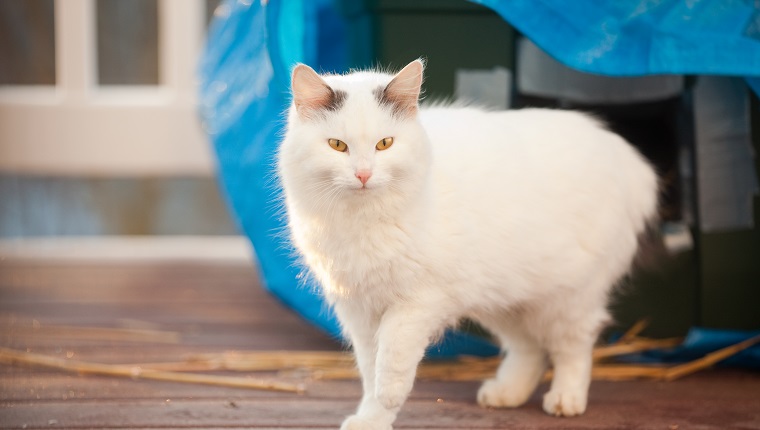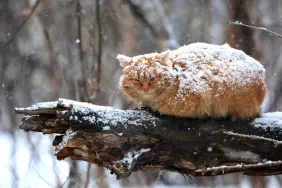In Columbia, South Carolina, some caring community citizens are creating outdoor cat shelters to shield stray and feral felines from harsh weather.
Citizens can make these simple shelters out of coolers or containers, along with a bit of cardboard and wheat straw.
WLTX spoke with the creators who offered helpful tips on how they build these shelters and maintain them.
How Outdoor Cat Shelters Keep Felines Safe
(Stock Picture Credit: sdominick/Getty Images)Claire Becraft, one of the creators of these outdoor cat shelters, explained to WLTX that cats find unusual and dangerous places to shelter themselves.
We covered such a case, recently, of a kitten rescued from a car’s engine bay, which I experienced myself, having adopted a kitten found in my stepdad’s truck engine as a child.
Give the hood of your car a good thump before you start it up. That’s especially important if you live in a colder area with a lot of outdoor cats.
Another of the cat shelter creators, Jennifer Prince, reminds us that these felines didn’t choose this life. “They didn’t choose to be left out on the street,” she says.
“If they are a nuisance to us, then it’s a community problem, and as a community, it’s up to us to deal with it in a humane and kind way.”
Crafting these shelters is meant to reduce situations like those.
How These Life-Saving Shelters Are Made
When crafting these shelters, creators use moisture-wicking wheat straw inside with cardboard layered beneath. Becraft noted that this kind of straw only needs to be changed out once every six months or so due to its durability.
Blankets and towels are not recommended, say the shelter creators. If they get wet, they’ll harden and freeze, sometimes to the cat.
The exteriors of the shelters are made of Sterilite containers.
“I will drill a hole in a large, Sterilite container,” Becraft explains. She also says that a “three-feet by two-feet” container works best. “[I] make a circular entrance on one end and then the same thing on the other end, and duct tape around that.”
Prince says she uses old coolers. “We’ll make them from plastic tote bins and Styrofoam coolers.”
The point of using such materials is to convey that anyone can do this. These materials are affordable or are often found just lying around our homes, taking up space. Why not free up that space and give a cat shelter at the same time?
If you’re interested in doing so, you can find further information and instruction in our article on keeping feral and stray cats safe in winter here!
Have you created outdoor cat shelters before? Will you try it to keep feral and stray cats safe in winter? Let us know in the comments below.









